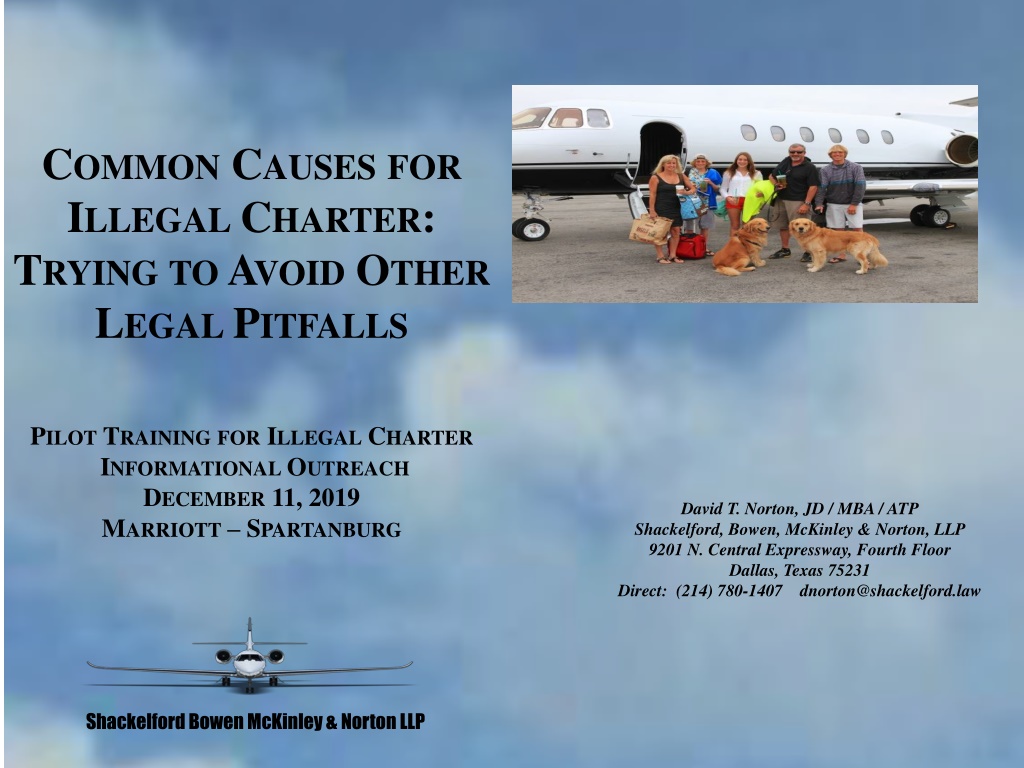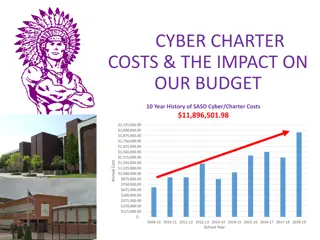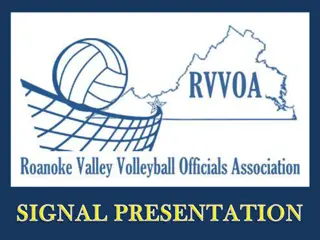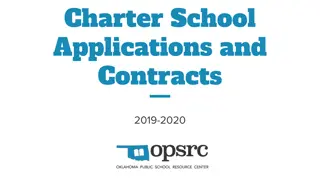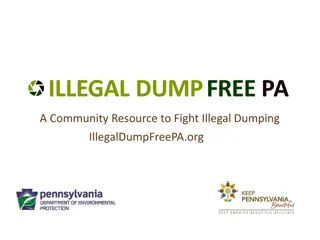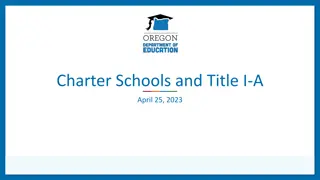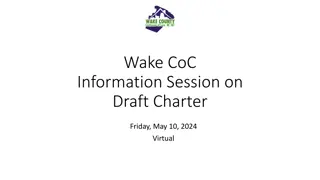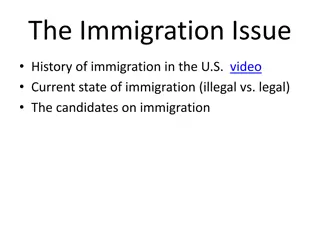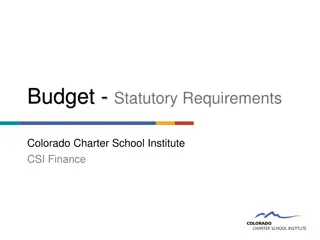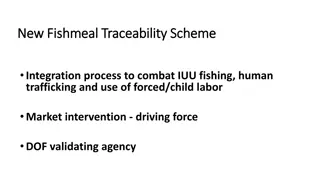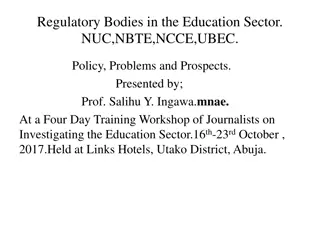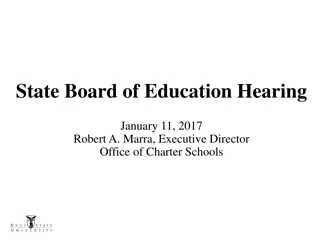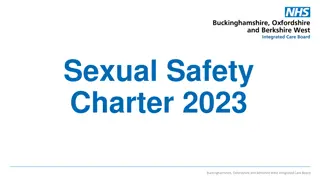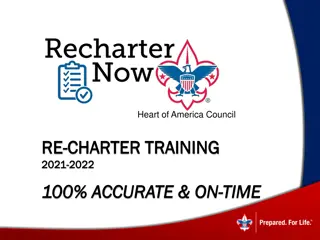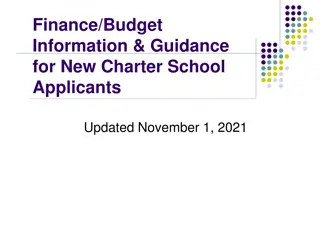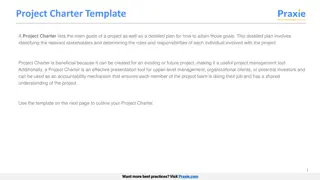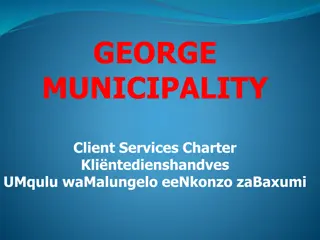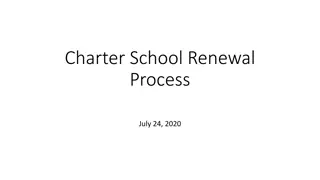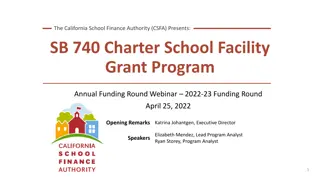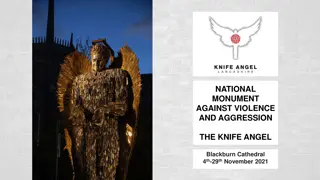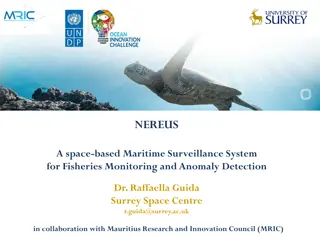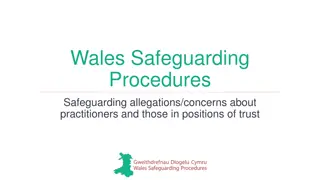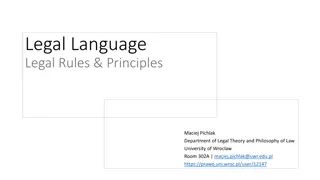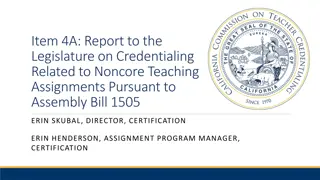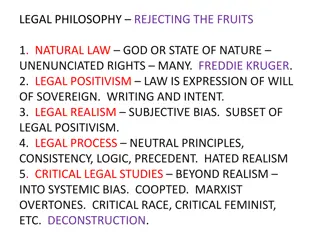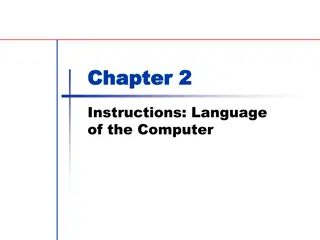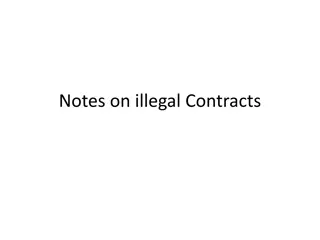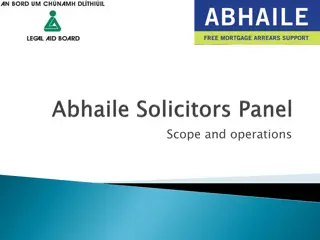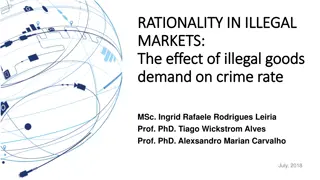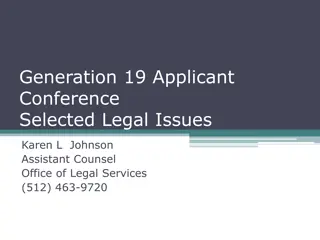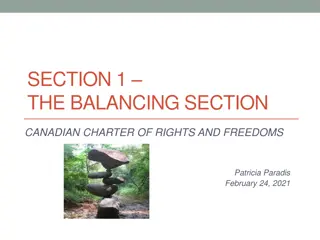Understanding Illegal Charter Operations and Associated Legal Concerns
Explore the common causes and implications of illegal charter operations, focusing on the legal pitfalls and risks faced by pilots and operators. Learn about key issues such as FAA regulations, tax implications, and civil risk management in the aviation industry.
Download Presentation

Please find below an Image/Link to download the presentation.
The content on the website is provided AS IS for your information and personal use only. It may not be sold, licensed, or shared on other websites without obtaining consent from the author. Download presentation by click this link. If you encounter any issues during the download, it is possible that the publisher has removed the file from their server.
E N D
Presentation Transcript
COMMON CAUSESFOR ILLEGAL CHARTER: TRYINGTO AVOID OTHER LEGAL PITFALLS PILOT TRAININGFOR ILLEGAL CHARTER INFORMATIONAL OUTREACH DECEMBER 11, 2019 MARRIOTT SPARTANBURG David T. Norton, JD / MBA / ATP Shackelford, Bowen, McKinley & Norton, LLP 9201 N. Central Expressway, Fourth Floor Dallas, Texas 75231 Direct: (214) 780-1407 dnorton@shackelford.law Shackelford Bowen McKinley & Norton LLP
If I had to choose, I would rather have birds than airplanes. Charles A. Lindbergh (1902-1974) Shackelford Bowen McKinley & Norton LLP
Common Analysis of Concerns from the Private Sector Side of Things: Federal Tax State Tax Civil Risk FAA? Shackelford Bowen McKinley & Norton LLP
But, That is Out of Order Should Be: Federal Aviation Regulations 14 C.F.R. Parts 1-199 Main Concern Here: Part 91 or Part 135? Don t Forget: DOT Economic Regulations (e.g., 14 C.F.R. Part 298) Then, Civil Risk Management Then, Federal Tax Then, State Tax Shackelford Bowen McKinley & Norton LLP
So what drives this error? Federal Tax Treating airplane costs as expenses against income Paying for personal use of aircraft State Tax structures to mitigate taxes SC has very low sales tax, but SC has property tax based on depreciated FMV of aircraft Civil Risk: Aircraft as a Dangerous Instrumentality Shackelford Bowen McKinley & Norton LLP
Consider First: FAA Key Issue Commercial Operations? Shackelford Bowen McKinley & Norton LLP
FAA Key Issue Commercial Operations? Commercial Operator: Is the operator carrying persons or property for compensation or hire? Operator : Registered Owner or Dry Lessee (more on leases in a second . . .) No such thing as a disregarded entity !!! Person : Warm body other than a crewmember No such thing as a disregarded entity !!! or Hire holding out What most people are thinking of . . . Compensation anything of value in any amount (no profit motive required) transferred with relation to a flight Shackelford Bowen McKinley & Norton LLP
FAA Key Issue Commercial Operations? So you are a Commercial Operator Does Part 135 Apply? Not necessarily: 14 C.F.R. Sec. 91.321 Carriage of Candidates 14 C.F.R. Sec. 91.501 Confusion Abounds! Narrow Exemptions for Business Aircraft: Demo Flights Affiliated Groups Time Sharing Interchange But they only apply to Business Aircraft . . . . Shackelford Bowen McKinley & Norton LLP
FAA Key Issue Commercial Operations? Flight Department Companies Very Common: Sole purpose, disregarded entity carrying the underlying owners who make capital contributions why? Usually looking for a tax efficient structure that provides liability shielding but: Ignores the FAA s rules (and general civil law) FDC s are per se charter operations Shackelford Bowen McKinley & Norton LLP
FAA Key Issue Commercial Operations? Leasing Wet Lease -- from 14 C.F.R. Sec. 110.2 Wet lease means any leasing arrangement whereby a person agrees to provide an entire aircraft and at least one crewmember This is the only regulatory requirement. Dry Lease not defined by default: Lease of an aircraft without a crewmember but wait . . . . Other Indicia of Operational Control . . . . Shackelford Bowen McKinley & Norton LLP
FAA Key Issue Commercial Operations? Is it Really Wet or Dry, and Why Does It Matter: Who has Operational Control ? 14 C.F.R. Sec. 1.1: Operational control, with respect to a flight, means the exercise of authority over initiating, conducting or terminating a flight. Think: The Person Who Gets to Say Where The Airplane Goes Today! Shackelford Bowen McKinley & Norton LLP
FAA Key Issue Commercial Operations? So who is the operator ? Wet Lease = Taxi Cab per se charter Dry Lease = Rental Car may be charter But is it really dry ? Who is responsible for: Fuel Insurance Maintenance Risk . . . Shackelford Bowen McKinley & Norton LLP
FAA Key Issue Commercial Operations? NOTE: Taking all of these into consideration, the Operator may be: The Lessor (on paper), The Lessee (on paper), or Someone else the manager? (not necessarily on paper . . .) Shackelford Bowen McKinley & Norton LLP
We have clearance, Clarence. Roger, Roger. What s our vector, Victor? Cockpit crew in movie Airplane. Shackelford Bowen McKinley & Norton LLP
Putting It Together: Current Problems: Dry Leasing Programs Membership Programs Ridesharing Misuse of Sec. 91.501 Exemptions, such as Interchange Shackelford Bowen McKinley & Norton LLP
Putting It Together: If tax planning, risk-management, or simply convenience drive you towards setting up an FDC, or flowing everything through an aircraft manager, or using an airplane when you don t really know who is in control you just know you want to fly someplace and pay as little as possible for it you are most likely in an illegal charter structure. Shackelford Bowen McKinley & Norton LLP
Putting It Together: If you don t want to be in a charter, then the operator either because he/she/it is the registered owner or a proper dry lessee must be a real or corporate person that is willing to bear the risk and is paying for everything out of his/her/its own pockets using money that is not being generated or transferred by or due to airplane flights . . . . Shackelford Bowen McKinley & Norton LLP
Aviation in itself is not inherently dangerous. But to an even greater degree than the sea, it is terribly unforgiving of any carelessness, incapacity or neglect. Captain A.G. Lamplugh, British Aviation Insurance Group, London, circa 1930 Shackelford Bowen McKinley & Norton LLP
Questions? Shackelford Bowen McKinley & Norton LLP
